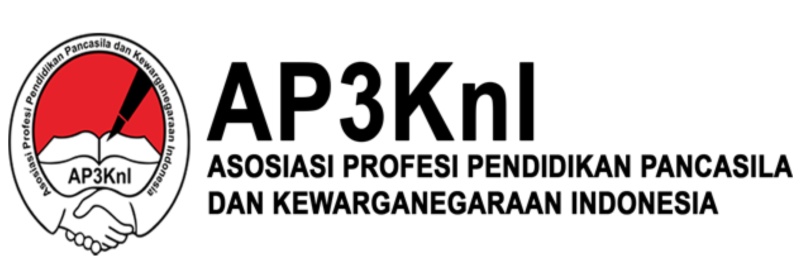STRATEGI PENGUATAN AKSES PEREMPUAN TERHADAP KEADILAN MELALUI LEGAL EMPOWERMENT DALAM RANGKA PENGETASAN KEMISKINAN PEREMPUAN
Abstract
Definitions and attributes of poverty has been too much attached to the economic aspects, especially measured by the level of income per capita, whereas the root of poverty is lack of access for poor people to participate in determining their own destiny in the decision making process for the purpose of policy formulation in various fields of life. Poverty should also include a lack of understanding and awareness of the law, mechanisms of assistance and legal assistance and access to the political process in decision making. If the poor are involved, then they will get protection of law. This is where the view on poverty from a legal perspective is becoming increasingly important. Poverty experienced by most women in Indonesia, especially women living in rural areas so that poverty limits the capacity of women to access justice. Poor access to justice is then further leads to further women trapped in poverty. Various studies and reports have revealed various obstacles that women face in accessing justice. The main obstacle is the general lack of awareness and understanding of their legal rights. To overcome these obstacles, one of the strategies to improve women's access to justice is legal empowerment or the empowerment law. In general, legal empowerment or the empowerment law is an effort aimed at strengthening the marginalized people, including in this case is a group of women, in order to improve their control over their lives, by making use of legal resources in the community and development activities related and not solely relying on legal institutions (formal). If women are empowered legally, then they get legal protection.
Keywords: Legal Empowerment, Acess to Justice, Poverty, Women.
Full Text:
PDFReferences
Amartya Sen. 1995. In Equality Reexamined Cases and Materials On Modern Property Law. Russel Sage Foundation.
Asia Foundation. 2001. Citizens’ Perceptions of the Indonesian Justice Sector. Jakarta: Asia Foundation.
Bappenas. 2008. Buku Panduan Perencanaan dan Pengannggaran yanag Berpihak pada Masyarakat Miskin. Jakarta: Bappenas daan ADB.
________ . 2009. Strategi Nasional Akses Terhadap Keadilan. Jakarta: Bappenas.
Bank Dunia. 2006. Program Pemberdayaan Hukum Perempuan. Tidak dipublikasinkan.
Bedner, Adrian & Vel, Jacqueline. 2009. Access to Justice and Rule of Law, Conceptual Paper No. 1, Van Vollenhoven Institute – Access to Justice in Indonesia, Faculty of Law, Faw – Laiden University.
Blackburn, Susan. 2007. Kongres Perempuan Indonesia : Tinjauan Ulang. Jakarta : Yayasan Obor Indonesia dan KITLV-Jakarta.
Cappeletti, M. 1992. Access to justice; Theory and Programme for Reform, The South African Law 109.
Commission on Legal Empowerment of the Poor. 2008. Making the Law Work for Everyone, Report of the CLEP Vol 1. New York: UNDP.
Deepa Narrayan, et. al. 2000. Voices of the Poor: Crying Out for Change, New York: Oxford University Press.
Dewi Novirianti. 2005. Penguatan Hukum Perempuan untuk Melawan Kemiskinan. Jurnal Perempuan edisi 45.
--------------------- . 2009. Paralegal dan Akses Perempuan Terhadap Keadilan : Dinamika dan Interaksi Hukum Internasional dan Keadilan di Tingkat Lokal, dalam “Hukum yang Bergerak-Tinjauan Antropologi Hukum”, Jakarta : Yayasan Obor Indonesia.
Genn, Hazel. 1999. Path to Justice : What People Do and Think About Going to Law. Hart : Oxfort.
Golub, Stephen and Kim Mc Quay. 2001. Legal Empowerment : Advaning Good Governance and Poverty Reduction in Law and Policy Reform at Asia Development Bank. Edition Manila : ADB.
-------------------- . 2003. Beyond Rule of Law Orthodoxy: The Legal Empowerment Alternative, Carnegie Endowment for International Peace, October 2003.
Golub, Stephen. 2006. “A House Without a Foundation, “ dalam Thomas Carothers (ed), Promoting the Rule of Law Abroad in Search of Knowledge, Washington, DC: Carnegie Endowment for International Peace.
Henrieta L. Moore. 1988. Feminist and Antropology, USA : University of Minnesota.
Jan Michiel Otto. 2007. Some Introductory Remarks on Law, Governance and Development ,Leiden : Van Vollenhoven Institute, Faculty of Law, Leiden University.
Justice for the Poor, Social Develepment Unit, Word Bank Indonesia. May. 2008. Forging the Middle Ground, World Bank Indonesia : Jakarta.
Keebet Benda-Beckmann. 1986. The Broken Stairways to Conssensus, Dorddrecht : Foris.
Merry, Sally Engle. 2005. Human Right and Global Legal Pluralism : Reciprocity and Disjuncture dalam Benda-Beckmann, Franz, Keebet von Benda-Beckmann, Anne Griffits, Mobile People Mobile Law. Expanding Legal Relations in a Contracting World. USA : Ashgate.
Nelson. M. 2007. “M&E: Four Components”, paper presented in the Regional Conference on Legal Empowerment for Women and Disadvantaged Groups, ADB Headquarters, Manila, 13-14 December 2007. Manila.
Sandra Harding. 1987. The Instability of the Analytical Categories og Feminist Theory, Signs : Journal of Women and Culture and Society.
Sulistyowati Irianto dan Lidvina Nurcahyo. 2006. Perempuan di Persidangan. Jakarta : Yayasan Obor Indonesia.
Shiva, V. dan Maria Mies, E. 1993. Australia: Spinifex Press .
Tong, R. P. 1998. Feminist Thought, A More Comprehensive Introduction. Colorado: Westview Press, Second Edition.
UNDP. 2007. Justice for All? An Assessment of Access to Justice in Five Provinces of Indonesia, Jakarta: UNDP.
Von Rooij, Benjamin. 2009. Bringing Justice to the Poor : Bottom-up Legal Development Cooperation, Working Paper, Van Vollenhoven Institute, Faculty of Law, Leiden University, the Netherlands.
Ward Berenschot dan Adriaan Bedner. 2013. “Akses terhadap keadilan : Sebuah pengantar tentang perjuangan Indonesia menjadikan hukum bekerja bagi semua orang”, dalam Akses Terhadap Keadilan : Perjuangan masyarakat miskin dan kurang beruntung untuk menuntut hak di Indonesia, Jakarta : HuMa.
Weisberg. D. Kelly. 1993. Feminist Legal Theory Foundations. Philadelphia : Temple University Press.
Refbacks
- There are currently no refbacks.







